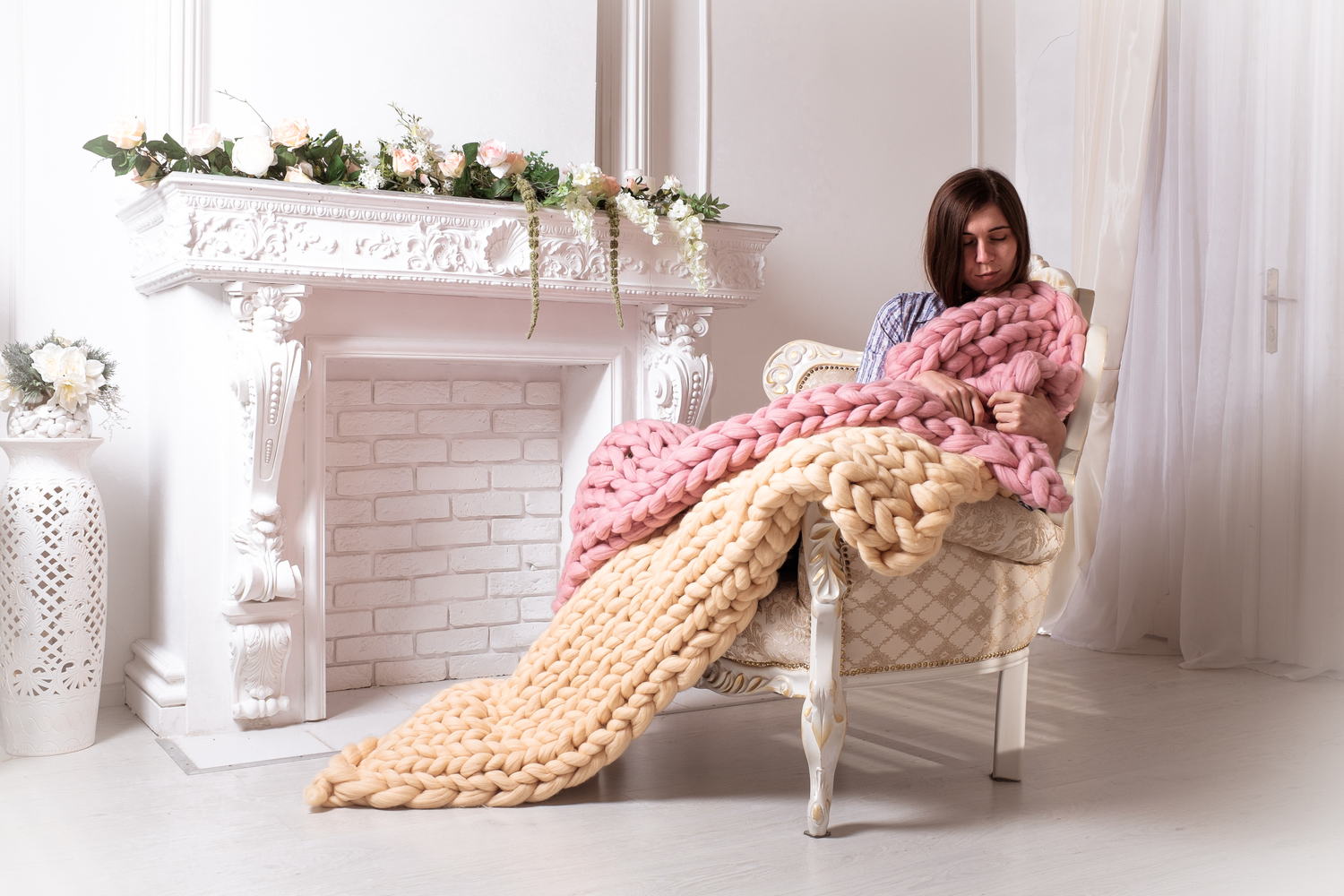
Benefits and What to Look for in a Weighted Blanket
If you’re anything like me, you’ve wandered around the web and found articles on weighted blankets, wondering what the big deal is. Weighted blankets have been used for decades for their therapeutic purposes and over the last couple of years they’ve made the leap to the mainstream wellness industry. They are meant to create a sensation of deep touch pressure, similar to the feeling of being held. Weighted blankets can help with mental health issues, but they are popular for patients with other health concerns.
Read on to find out the benefits of weighted blankets and what to look for when shopping:
1. Insomnia
Those who have suffered from insomnia know the pain of tossing and turning or waking frequently throughout the night. When slumber feels elusive, instead of reaching for an over-the-counter sleep aid, try sleeping beneath a weighted blanket. Weighted blankets give the deep touch pressure stimulation that promotes serotonin, the sleep regulating chemical. They are known to improve quality sleep and can help break the cycle of insomnia.
2. Sensory processing disorder
People with sensory processing disorder are overly sensitive to stimuli in their environment. Things like sound and touch can be overwhelming and painful. It is commonly seen in developmental conditions, such as autism. Research has shown that a weighted blanket can produce a calming effect for kids and adults with sensory processing disorder and can reduce the anxiety associated with this condition.
3. Anxiety disorder
Anxiety is a natural part of life, but people with an anxiety disorder have an intense, excessive, and persistent worry or fear about everyday situations. These feelings of panic can interfere with daily activities and can be difficult to control. One of the natural ways people are dealing with this disorder is by using weighted blankets. Weighted blankets simulate a firm, but gentle hug and can produce a calming sensation in people, calming their anxiety disorder.
4. Attention deficit hyperactivity disorder
Commonly referred to as ADHD, attention deficit hyperactivity disorder is a disorder that affects impulse control and focus in children and adults. These behaviors can become disruptive and interfere with school and home life. Studies have shown that deep touch pressure stimulation can make patients feel calmer and can improve focus.
5. Fibromyalgia
Fibromyalgia is a disorder associated with widespread musculoskeletal pain, resulting in tenderness, fatigue, sleep, memory, and mood issues. Doctors believe that it affects the way the brain processes pain signals. The pain can be debilitating and many use pain relievers to cope. Those with fibromyalgia should try a weighted blanket as a natural means of preventing painful flare-ups.
6. Restless leg syndrome
Also called Willis-Ekbom disease, restless leg syndrome causes uncomfortable sensations in the legs creating an irresistible urge to move them. The symptoms can be more pronounced in the evening and are often severe at night when resting or lying in bed. The condition can lead to insomnia and some patients swear that weighted blankets help them cope. They provide enough pressure without constricting movement in the legs.
7. Weighted blanket shopping tips
Now that you’re convinced that a weighted blanket can cure all that ails you, you might be wondering what to look for when shopping. Keep in mind that these blankets can be pricey, but consider it an investment in your health:
- Weight: Weighted blankets range between 4 to 30 pounds and the heaviness you choose should be based on your weight. A weighted blanket should be about 10% of your body weight.
- Material: Most weighted blankets are either weighed down with either glass beads or plastic pellets. Glass beads tend to be heavier and can make the blanket more expensive than those made with plastic pellets. They can include polyester fiberfill and be warm like a comforter, but if you run warm maybe opt for a blanket without filling.
- Removable cover: Weighted blankets are notoriously difficult to wash because they’re so heavy. They will either come with a cover made of cotton or fleece, but some companies will sell this as an add-on.
- Size: Weighted blankets are not meant to cover your entire bed and should cover your body from the neck down. A good rule of thumb is to size down from your mattress, such as if you have a queen-size bed you should opt for a twin-size blanket.



